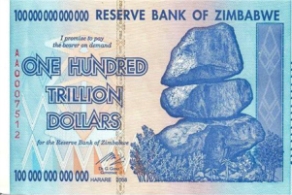I rarely have a guest post, but I found this piece exceptional. It takes Krishnamurti’s wise words, “To know is to be ignorant. Not to know is the beginning of wisdom.” and applies them to a business setting.
I look forward to your thoughts,
Frances Cole Jones
Gresham’s Law of Strategy: Why Bad Advice Drives out Good Advice
Near the end of a seminal essay on strategic surprise, Richard Betts writes, “The intelligence officer may perform most usefully by not offering the answers sought by authorities, but by offering questions, acting as a Socratic agnostic, nagging decision makers into awareness of the full range of uncertainty, and making authorities’ calculations harder rather than easier.” I believe that the same should be true for corporate strategy consultants: their job is to make long-range calculations harderrather than easier.
Why then, is the opposite so often true? In a world in which surprise, disruption and the unanticipated are rife, why do strategists who promise to make calculations easier rather than harder often succeed? I think a phenomenon that I call of “Gresham’s Law of Strategic Advice” is at work.
As my friend Dylan Grice at Société Générale recently reminded us in an issue ofPopular Delusions, Gresham’s Law is an economic term which proposes that when two currencies are in circulation side by side, bad currency – that which is debased – tends to drive out sound, pure currency. Dylan summarized why: when two currencies are in circulation together, one stable and the other falling in value, consumers choose to pay for goods and services with the declining currency while hoarding the stable one. Over time, only the depreciating currency is left in circulation: sound money “disappears”, bad money drives out good. While the law is named for Sir Thomas Gresham, a Tudor banker who witnessed Henry VIII’s debasement of the coinage, the phenomenon was noted as early as the fifth century BCE in Aristophanes’ play The Frogs.

